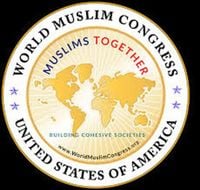On September 11, 2025, the United Nations Human Rights Council (UNHRC) in Geneva became the stage for a powerful plea from Kashmiri representatives, who called for urgent international intervention in response to what they described as an escalating human rights crisis in Indian-administered Jammu and Kashmir. Speaking during the Council’s general debate under Agenda Item 2, Altaf Hussain Wani of the World Muslim Congress, Shamim Shawl of the International Women Union, and Advocate Parvez Ahmed Shah of United Village painted a stark picture of repression, erasure, and systematic silencing of Kashmiri voices. Their message was clear: without justice for Kashmir, peace in South Asia will remain a distant dream.
According to Kashmir Media Service and the Associated Press of Pakistan, the Kashmiri delegates alleged that India is waging a deliberate and coordinated campaign to erase Kashmiri identity and history. They cited the imposition of settler-colonial laws without public consent, the banning of books, the removal of newspaper archives and digital human rights records, and sweeping restrictions on freedoms of expression, assembly, and association. These actions, they argued, amount to what they called “constitutional terrorism.”
“Without memory there can be no justice, and without justice there can be no peace,” the representatives declared, urging the Human Rights Council and the wider international community to act decisively. Their warning was not just about the present, but about the risk of erasing the very evidence of past abuses. The destruction of archives, they cautioned, threatens to eliminate documentation of enforced disappearances, mass graves, and sexual violence—crimes for which accountability remains elusive.
The speakers did not mince words about the consequences of inaction. They argued that the ongoing repression in Jammu and Kashmir is not only a local tragedy but a threat to regional stability. Recent events, such as a reported false-flag operation in Pahalgam, were highlighted as potential flashpoints that could trigger dangerous escalation across South Asia. The representatives insisted that “durable peace in South Asia is impossible without granting the Kashmiris their UN-mandated right to self-determination.”
The appeals to the UNHRC were specific and urgent. The Kashmiri leaders called for a time-bound, independent investigation into what they described as the systematic destruction of cultural and historical records, and demanded the immediate restoration of Kashmir’s archives. They also pressed for unfettered access to the region for UN special procedures, independent observers, human rights organizations, and international media—access that has been repeatedly restricted in recent years.
In addition, they requested an updated assessment from the Office of the High Commissioner for Human Rights (OHCHR) on the prevailing situation in Jammu and Kashmir, and urged the immediate release of more than 3,000 political detainees held under what they termed “draconian laws” such as the Public Safety Act (PSA) and the Unlawful Activities (Prevention) Act (UAPA). Many of these detainees, including prominent leaders, are reportedly subjected to prolonged solitary confinement and have been transferred far from their families, compounding their suffering.
The case of Shabir Ahmed Shah, a prominent Kashmiri political leader, was cited as emblematic of the broader campaign to silence dissent. As detailed in a recent profile by the chairman of the Kashmir Institute of International Relations, Shah has spent more than 37 years in prison, earning the moniker “Prisoner of Conscience” from Amnesty International and other rights groups. Born in Islamabad, Kashmir, Shah’s activism began in the late 1960s, and he quickly became a central figure in the resistance, leading protests against the Indira-Abdullah Accord in 1975 and the Quit Kashmir Movement in 1982. His repeated arrests and detentions, particularly after the rigged 1987 elections and during the turbulent 1990s, turned him into a symbol of resilience for many Kashmiris.
Despite numerous offers of autonomy and material incentives from the Indian government, Shah steadfastly refused to compromise on the principle of self-determination for Kashmiris. He rejected Indian nationality, declined to participate in Indian-supervised elections, and insisted that no solution within the Indian Constitution could address the region’s disputed status. Even after being jailed in New Delhi’s Tihar Jail since July 2017—where he has been repeatedly denied bail despite the National Investigation Agency’s inability to produce substantial evidence—Shah remains, in the eyes of many, a beacon of resistance and moral courage.
The Kashmiri representatives’ interventions at the UNHRC were not solely about individual cases, however. They described a broader pattern of repression: the dismantling of indigenous political leadership, the suppression of collective will, and the attempt to erase the history and identity of an entire people. As they told the Council, “India’s destruction of archives was aimed at eliminating evidence of enforced disappearances, mass graves, and sexual violence.”
The international response, they argued, has so far been inadequate. They called on the Human Rights Council to take concrete steps: initiate an independent investigation, restore access to the region, update the OHCHR’s assessment, and press for the release of political prisoners. The representatives also warned that the current trajectory risks not just the loss of Kashmiri heritage and dignity, but the possibility of wider conflict in a region already marked by volatility.
While India maintains that its actions in Jammu and Kashmir are necessary for national security and integration, critics—both within and outside the region—contend that the measures have led to widespread human rights violations and increased alienation among Kashmiris. The Kashmiri representatives’ statements in Geneva reflect deep-seated grievances and a plea for international solidarity, but they also underscore the complexity of the conflict, where questions of sovereignty, identity, and justice remain deeply contested.
As the debate continues at the UNHRC and beyond, the fate of Kashmir’s archives, its political prisoners, and its right to self-determination remain at the heart of a struggle that has spanned generations. The call from Geneva is clear: memory and justice are inseparable, and the world cannot look away from Kashmir’s unresolved crisis.

